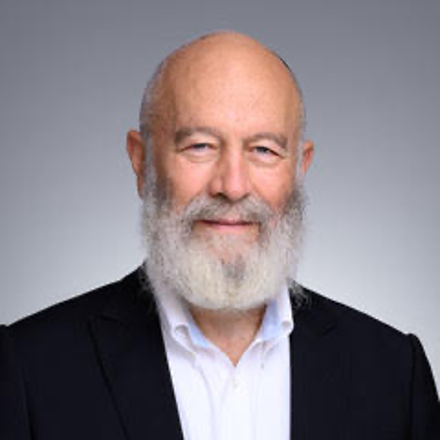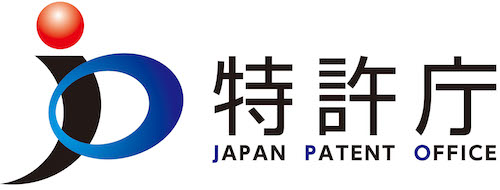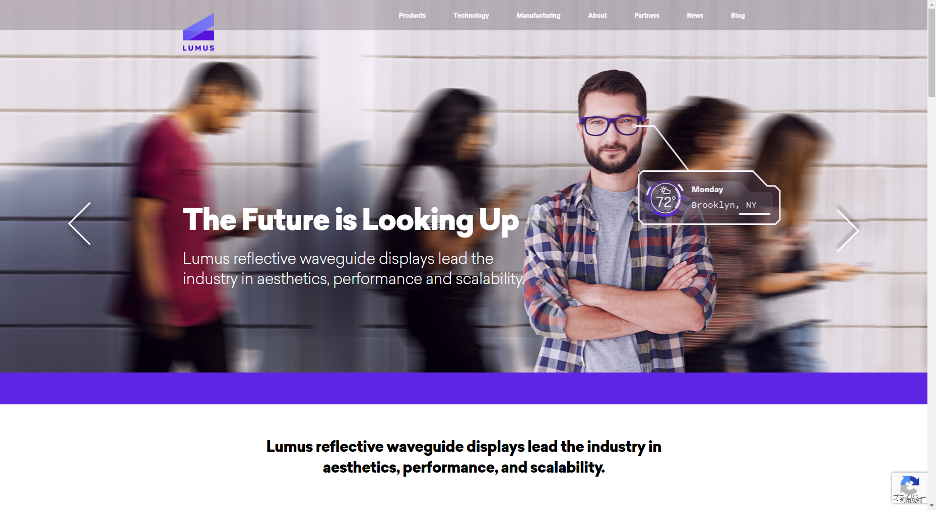IP BASE English Page
Corundum Open Innovation Ltd. ゼネラルパートナー シュロモ・カリシュ(Shlomo Kalish)氏インタビュー
世界有数のスタートアップ輩出国・イスラエルの黎明期を支えた投資家に聞く、成功する企業の条件/We asked the investors that supported the dawn of Israel as a major startup exporter hub in the world about the necessary conditions for successful enterprises.
世界で活躍する起業家や企業を多数輩出するスタートアップ大国として知名度の高いイスラエル。そんな同国で花開いた起業文化の黎明期を支え、現在も数多くのスタートアップ輩出に尽力するシュロモ・カリシュ氏に、イスラエルの起業事情やコミュニティ、成功したスタートアップ事例や今注目の領域などについて聞いた。

Corundum Open Innovation Ltd. ゼネラルパートナー シュロモ・カリシュ(Shlomo Kalish)氏
1994年に投資会社Jerusalem Global Groupを、1999年にJerusalem Global Venturesを設立。Saifun Semiconductors、Oridion Medical、Creo、Galileo Semiconductor、QXL-Ricardo、PrimeSenseなど、イスラエルで最も成功したスタートアップを多数支援。現在は、投資会社Corundum Open Innovation Ltd.のゼネラルパートナーを務めるほか、イスラエルのIDC Herzlia(ライマン大学)のAdelson School of Entrepreneurshipで教鞭をとる。テルアビブ大学の数学の学士号のほか、マサチューセッツ工科大学で応用数学の博士号を取得。
歴史的・地理的背景で養われたイスラエル人の起業家精神
人口約934万人、四国ほどの国土面積を持つイスラエル。同国は今、先進的かつ独創的なイノベーションを起こすスタートアップ輩出国として躍進している。
「ユニコーン数では、1位の米国に次いで2位。ひとりあたりの数からすれば、むしろイスラエルが1位と言っても過言ではない」。シュロモ・カリシュ氏はそう述べて、胸を張る。
イスラエルでカリシュ氏を知らない人はいない。1994年、同国がスタートアップ大国としての第一歩を踏み出した年に投資会社を創業し、数々のスタートアップの成功を後押ししてきた人物だ。現在はCorundum Open Innovationでイスラエルと日本の架け橋となり、有望なスタートアップの紹介や日本企業のイスラエル事業進出支援などを行っている。
同氏の人脈には、そうそうたるメンバーがそろう。第13代および17代首相を務めたベンヤミン・“ビビ”・ネタニヤフ氏はMIT時代の同窓生。第18代首相を務めるナフタリ・ベネット氏は、1999年に米国でサイバーセキュリティ会社Cyota(のちに旧RSAが買収)を創業した頃からよく知っているという。ほかにも、チェックポイント・ソフトウェア・テクノロジーズの創業者ギル・シュエッド氏とシュロモ・クレイマー氏も旧知の仲。同氏が投資するイスラエル大手VC、Glilot Capital Partnersも、創業者たちはカリシュ氏が教鞭をとる大学の学生だった。
起業に対して積極的な同国だが、そこには地理的・歴史的背景があるとカリシュ氏は分析する。
「ユダヤ系の人々は2000年もの間、流浪の民となり、迫害を受けながらさまざまな土地を転々としてきた歴史がある。そんな状況から、革新的な発想で既存のものを再構築し、自分たちの生きる場所を創ろうという気質が生まれたのかもしれない」(カリシュ氏)
特に強みとなるのが、失敗を恐れない精神力だ。「イスラエル人は、失敗をいとわず誰もがやってこなかったことにチャレンジするのが大好きだ。これは、起業家精神と相性がいい。スタートアップ業界において、失敗は良いことではないが許容の範囲だ。失敗したからといってキャリアが終わるわけではない」。失敗も未来の成功の糧に変えようと、うまく気持ちの切り替えができて前進できるのは、イスラエル人ならではの気質ゆえとカリシュ氏は言う。
円熟するイスラエル起業業界のエコシステム
もうひとつ、カリシュ氏は小国としてのハンデがスタートアップとしての強みを育てたと指摘する。
「イスラエルには日本や米国、中国のように、海外展開をする前に会社を大きくできるほど、国内市場が大きくはない。裏を返せば、イスラエルの起業家は創業を考えたその日から国際市場を見据えた製品開発を考えなければならない」(カリシュ氏)
1994年当時、イスラエルはシリコンバレーを参考に、米国をターゲットの市場と設定。実際にシリコンバレーに移り住み、投資家や顧客を魅了するための秘訣などを積極的に学んだ。そのような先人の努力の甲斐もあって、今ではイスラエル本土に素晴らしいエコシステムが構築されたという。
「投資家、投資会社、弁護士、弁理士、コンサル会社、アクセラレーターなど、起業をバックアップしてくれる人たちが現在ではすべてそろっている。ミートアップやカンファレンスも頻繁に開催され、起業しやすい環境が整い、今では世界中から起業家がイスラエルを目指してやってくる」(カリシュ氏)
約20年前は、イスラエルのエンジニアの給与はシリコンバレーの1割程度だったと明かすカリシュ氏。だが今はほぼ同額にまで上昇した。高額な資金投資を受け、ポーランドやウクライナ、ブルガリアなど他国に開発拠点を置くことも増えた。
国内のビジネス事情も大きく変容した。今は海外の大手企業がイスラエルに拠点を展開して優秀なエンジニアの雇用に乗り出している。
「若い人たちにとって選択肢が増えたことは良いこと。大手企業に勤めて安定した給与を得ることも、スタートアップで夢に挑戦することも可能だ。もっとも、イスラエル人の気質からか、リスクを踏まえて起業に挑戦する人は今も多い。大手企業で経営や事業について学び、経験や実力を身につけて、人脈を構築し、自分自身に起業家の資質があるかを見極めた上で起業に挑戦するのも良い手だろう」
直近のイスラエルでの成功スタートアップ例として、半導体、AI、フィンテック、そしてセキュリティー分野などをカリシュ氏は挙げる。
半導体分野では、チップの設計を特許出願し、台湾や中国などのグローバルな製造エコシステムに製造を委託するビジネスモデルで成功したMellanoxがある。同社は2020年、Nvidiaに69億ドルで買収され、業界から大きな注目を浴びた。AI分野では、自動運転の先進運転支援システムなどを研究開発し、2017年にインテルが153億ドルで買収したMobileyeが著名だ。さらにMobileyeは2020年、交通アプリでのMaaS(Mobility as a Service)ソリューションを提供するMoovitを買収。Mobileye事業の傘下に加えて、自動運転事業のさらなる拡充を目指すと発表した。最新のニュースでは、インテルはMobileyeをニューヨーク証券取引所へ上場させる計画もあり、評価額は500億USドルと言われる。
このほか、電動自動車(EV)基盤をモジュール形式で開発・販売するREE Automotiveもカリシュ氏は取り上げた。同社の基盤を実装すれば電動化・自動化ができるという発想のソリューションで、日野自動車は今年4月、同社と業務提携契約を締結して次世代商用モビリティのプロトタイプ開発に取り組んでいる。
「いずれのスタートアップも、個人的に興味深い事例だ。一般的にハードウェアの場合、大規模な製造工場が必要で、国土面積の課題や市場のスケーラビリティーから、こうした企業はイスラエルで誕生することはないと考えていた」。そう明かすカリシュ氏は、徹底したOEM戦略により新たな市場進出を叶え、良い意味で期待を裏切った両社に賛辞を述べた。
さらにフィンテック(InsurTech)分野では、三井住友海上と提携したHippo EnterpriseやAIチャットボット×保険のLemonadeの2社のユニコーン企業がある。また、セキュリティー分野では、グローバルの3割近くの企業をイスラエルが占めているとカリシュ氏は指摘する。
「起業家の資質」「PMF」「知的財産」が成功の条件
数多のスタートアップを見てきたカリシュ氏は、成功する企業の主な条件として「起業家の資質」「PMF (Product Market Fit)」「知的財産」の3つを挙げた。
同氏は、成功するかどうかは9割方、起業家の資質にかかっていると断言する。信頼できる人物か、リーダーシップはあるか、知識や経験はあるか、モチベーションやスタミナ、営業力はあるか。こうした資質は、既存の大手企業と勝負する上で非常に重要な要素だという。
「スタートアップは船に似ており、起業家は船長。嵐や海賊など、数々の困難に遭遇したとき、どう対処して乗り越えるかは船長の腕にかかっている。現代のスタートアップも同様に、計画通りに進まない事業、大手の突然の市場参入など、予期せぬ困難に陥る可能性がある。このときの判断が会社の運命を左右する」(カリシュ氏)
有能な起業家の好例として、シリアルアントレプレナーでエンジェル投資家のAvigdor Willenz(アヴィグドール・ウィレンズ)氏をカリシュ氏は挙げる。同氏はL2スイッチ向けICチップを開発するGalileo Technologyの創業者で、同社をMarvell社へ売却した後、Amazonへ売却したAnapurnaやIntelへ売却したHabanaなど、前述したMellanoxを含めて10社以上を起業した。「彼が新たに起業すると聞けば、考えるまでもなく誰もが投資する。その結果、大きな競争を呼び、投資額も必然的に高騰する」
では、1社目の起業家をカリシュ氏はどう見るのか。「成功の可能性が見えないだけに、賭けの要素が強くなる。私自身も、すべての投資で成功しているわけではない。それでも、少しでも可能性があると感じたときは、起業家をより深く知るため、たくさんの時間を使って対話を繰り返す」
続いては、PMF(Product Market Fit)だ。スタートアップの場合、大手企業のようにすべての顧客ニーズを満たすソリューションが提供できるわけではない。つまり、ある領域をピンポイントで狙い撃ちするような、ニッチな領域を攻めていくことになる。カリシュ氏は、テスラを例に挙げる。
「イーロン・マスクが創業したとき、テスラに投資する人は少なかった。新しいと言われる電気自動車でも100年以上の歴史があり、それほど魅力的な投資先に見えなかったからだ。でも彼はそこを見抜いていた。あるインタビューで、『ハリウッドやシリコンバレー“村”の人々は環境保全と聞けば大枚をはたく。私が開発するのは、そうした村の人たちが買う車』と述べている。村の人たちが乗り回してみんなに見せつけたくなるような車に仕上げるため、彼はパワー不足で航続距離が短いと言われたバッテリー問題を解決し、400km走れるスポーツカーを開発した。当然高額になったが、裕福なシリコンバレー“村”の人たちにとっては大した問題ではなかった。」
最後の3つ目は、知財だ。カリシュ氏は、知財は強力な防御力だと定義する。
「以前投資した会社に、メタバース用途のARグラスを開発するLumus Visionがある。彼らは光学式ヘッドマウントディスプレイシステムの特許をとり、ハードウェアの製造は他社に任せるビジネスモデルを選択した。Lumusは設計開発などにフォーカスし、テクノロジーを守るため、世界各国での特許出願に毎年何百万ドルも投資している。実際、何社か特許権侵害の回避を試みたが、結局成功しなかった。LenovoのARスマートグラスも、システムはLumusのものを採用している。」
グローバルにおけるひとりあたりの特許数ではスイスと日本がトップだが、いずれも所有者は大手企業であるのに対し、イスラエルではスタートアップが主要な所有者だとカリシュ氏は言う。「スイスや日本は優秀な人材が大手企業に就職する傾向があるのに対して、イスラエルでは優秀な人材が起業するのが理由だろう」
カスタマーフォーカスで選ばれる企業を目指してほしい
カリシュ氏は約20年前の2000年に、起業家へのアドバイスを「10の掟(Ten Commandments)」として以下のように提言している。
Love the customer:顧客を愛すること
Love your people:社員を愛すること
Focus focus focus:特定課題の解決にフォーカスすること(ひとつの製品でひとつの課題解決に注力する)
Speed and efficiency:スピードと効率を大切にすること
A dwarf on a giant's shoulders:自分たちの成功は偉大な先人たちの功績の上にあることを忘れないこと
Raise money when you can:資金調達はできるときにやること
Always raise more but keep an eye on the money:より多くの投資を得られるよう努力しつつ、資金の行方から目を離さないこと
Maximize the value of exits, not your share of the pie:シェアではなく、イグジット時の価値を最大化すること。適切な投資家を選択すること。
Manage expectations:顧客や投資家など、周りからの期待をうまく制御すること
Personal investment:自分のお金を自社へ投資するのは避けること
「普遍的なメッセージだから、あえて“掟”という言葉を付けた」と明かすカリシュ氏は、現代にも通じるこれらの中から今一番伝えたいメッセージとして「Love the customer:顧客を愛すること」を選んだ。
「顧客は、数ある選択肢の中から1つの製品を選ぶ。そのとき、好みやニーズを詳細に把握し、新しいテクノロジーを使って満足度を高められれば、選んでもらえる可能性はぐんと高まる」(カリシュ氏)
誰もが起業できるわけでもないし、誰もが成功するわけでもないとカリシュ氏。そんな世界で挑戦するスタートアップを、今日も同氏は応援する。所属するCorundumでは、Vertex Ventures IsraelやGlilot Capital Partnersなどイスラエル大手のVCにも投資をしており、直接アクセスできないスタートアップにもリーチし、事業の可能性を広げる手伝いをしている。
「日本は素晴らしい国で、優れた人材や企業が多い。規律を重んじるところは、イスラエルに共通する美徳。2014年にネタニヤフ首相が訪日した際、先進科学技術やイノベーション、サイバーセキュリティーなどの分野で協力し、包括的パートナーシップを構築すると共同声明を発表した。今後、スタートアップなどを通じてさまざまな形で、より実りある連携を進めてスタートアップに貢献していきたい」
Israel is world famous as a great startup nation for churning out highly successful entrepreneurs and businesses. We asked Dr. Shlomo Kalish who is well known for supporting the dawn of the entrepreneurship culture in Israel and even today for putting his effort into releasing large numbers of startups in Israel about successful startup cases and the new areas of interest in the startup world.

Corundum Open Innovation Ltd. General Partner, Shlomo Kalish
Dr. Kalish established the investment company, Jerusalem Global Group in 1994 and then founded Jerusalem Global Ventures. He financially supported Saifun Semiconductors, Oridion Medical, Creo, Galileo Semiconductor, QXL-Ricardo, Moovit, Mellanox, Wilocity as well as PrimeSense which were among Israel’s most successful startups. Currently, he works as a general partner of the investment company, Corundum Open Innovation Ltd. while he lectures at the Israel IDC Herzlia (Israel University) Adelson School of Entrepreneurship. He has a mathematics bachelor’s degree from Tel Aviv University as well as a doctoral degree in applied mathematics from MIT (Massachusetts Institute of Technology).
The Entrepreneurial Spirit that was nourished in Israel from a historical and geographical perspective.
Israel has a population of approximately 9,340,000 and an area equivalent to Shikoku (Prefecture) island in Japan. Israel is making rapid progress in producing startups by awakening a progressive and unique spirit of innovation in the country.
“It is only second to the US in the number of so-called “Unicorns”. Considering the per capita numbers, it wouldn’t be a stretch to say Israel is number one,” said Shlomo Kalish with pride.
In Israel there is no one that doesn’t know Dr. Kalish. In 1994, he founded an investment company in Israel in the same year that Israel took its first step to become a major investment nation. He is someone that backed numerous startup successes. In the present day, Corundum Open Innovation stands as a bridge between Japan and Israel. It is providing introductions for promising startups and supporting the entry of Japanese enterprises into the Israeli market.
Among those in Dr. Kalish’s network are many well known figures, such as one of his MIT era alumni, Benjamin “Bibi” Netanyahu who served as the 13th and 17th Prime Minister of Israel. Dr. Kalish is also said to be well acquainted with the 18th Prime Minister of Israel, Naftali Bennett from the days when Bennett founded the cyber security company, Cyota (which was subsequently acquired by RSA) in 1999 in the USA. In addition, Dr. Kalish is a longtime friend of the founders of Checkpoint Software Technologies, Gil Shwed and Shlomo Kramar. The founders of Glilot Capital Partners, a major Israeli venture capital firm, were also students at the university that Dr. Kalish lectures at.
Dr. Kalish analyzes the geographical and historical reasons for why Israel is such a proactively pro-entrepreneurial nation.
“The Jewish people were a wandering people without a home for 2,000 years going from country to country while being persecuted throughout history. And it may be that as a result of that, we discovered a revolutionary reconstruction of existence and the desire for us to have our own home,” remarked Dr. Kalish.
One of the Israelis’ main strengths is their mental fortitude to not fear failure. “Israelis don’t dwell on failure and love to challenge what no one else has done yet. This attitude matches well with the entrepreneurial spirit. In the startup industry, while failure is by no means a good thing, it is much more easily forgiven. Just because you experienced a failure does not mean your career is over,” says Dr. Kalish. He further explains that turning failure into a sort of food for future success and switching gears to a positive mindset is a unique trait Israelis carry that supports their success.
The Maturing Israeli Entrepreneurial Ecosystem
Dr. Kalish also points out that having a handicap as being a small country has fostered strength in the startups from Israel.
Dr. Kalish tells us, “Unlike Japan, the US or China where before companies expand overseas, they can grow large within the domestic markets of their own nations, Israel does not have a large enough domestic market to facilitate that. On the flip side, Israeli entrepreneurs must think about product development in line with the international market from day one of setting out to start their enterprise.”
In 1994 Israel saw the US market as the target seeking Silicon Valley references. Dr. Kalish even moved to Silicon Valley where he learned the secrets to attract investors and customers. Thanks to the efforts of those who had been successful before, Israel has now built a fantastic ecosystem for success in the mainland of Israel.
Dr. Kalish remarks that, “Israel has lined up the investors, investment companies, specialized lawyers, patent attorneys, consulting companies, and accelerators you need to back up your startup. Meet-ups and conferences are frequently held making it an environment in which it is easy to start up a business. Now, entrepreneurs from all around the world are aiming for Israel.”
Dr. Kalish confesses that around 20 years ago, the average Israeli engineer salary was around 1/10th that of those in Silicon Valley. But today, it has risen to nearly the same amount. After receiving high value financial investments, development bases have increased around the world in places like Poland, the Ukraine, and Bulgaria.
The domestic business situation has changed a lot. Now, large corporations have expanded branches in Israel and that has led to us being able to attract excellent engineers to be hired here.
“For young people, it is great that their choices have increased. It is also now possible for young people to work in large corporations receiving stable salaries and thus they can try their hand at achieving their startup dream. It is possibly due to the inherent Israeli spirit that now there are many people who are willing to take on risks and start up their own businesses. In the large corporations they work in they learn about management and business, they acquire experience and competency, and they build up their network. And they find out if they have what it takes to become entrepreneurs before embarking on their journey to start up a business. All of this is an advantage for them.” - Dr. Kalish.
Among the recent Israeli startup success cases, Dr. Kalish refers to the semiconductor, AI, Fin-Tech and security fields.
In the semiconductor field, there is Mellanox which has applied for a patent for their chip design and succeeded with their business model of manufacturing their products in Taiwan, China and other global manufacturing ecosystems. Mellanox was bought in 2020 by Nvidia for 6.9 billion US dollars and got a lot of attention in the industry.In the AI field, there is Mobileye which has been researching and developing advanced driver assistance systems for autonomous driving of vehicles. Mobileye was acquired by Intel in 2017 for 15.3 billion US dollars. Next, in 2020 Mobileye acquired Moovit which provides MaaS (Mobility as a Service) solutions for transportation needs. In addition to what was under the umbrella of Mobileye, they announced that they aim to further expand their autonomous driving business. Recent news mentioned that Intel plans to float Mobileye in NYSE at a valuation of over $50B US.
Dr. Kalish further remarked about REE Automotive which develops and sells electric vehicle (EV) boards in module form. With the idea that REE Automotive could electrify and automate the boards, Hino Motors signed an agreement with the company in April of this year to develop prototypes for next-generation commercial mobility solutions.
“No matter which startup we discuss, they are all interesting to me personally. In general, hardware requires a large manufacturing plant and due to land area requirement issues and market scalability challenges, people thought these sorts of enterprises would not emerge in Israel.” explained Dr. Kalish. Due to thorough OEM strategies, these companies were able to enter new markets and many were disappointed in a very good way (by having their expectations not come to pass). In saying so, Dr. Kalish continued to compliment the two companies.
With regards to the FinTech (InsurTech) field, there are two unicorn companies that stand out: Hippo Enterprise that’s affiliated with the Mitsui Sumitomo Insurance Group and AI Chatbot - Insurance company, Lemonade. As for the security field, Dr. Kalish points out that Israeli companies account for 30% of all security companies across the globe.
“The Entrepreneurial innate disposition”, “PMF” (Product Market Fit) and “Intellectual Property Protection” are the three conditions for success
According to Dr. Kalish who has seen a vast number of startups, the success of an enterprise hangs on three conditions: “The Entrepreneurial innate disposition”, “PMF” (Product Market Fit) and “Intellectual Property Protection.”
Dr. Kalish insists that whether the enterprise will be successful or not is 90% resting on the innate disposition of the entrepreneurs. Is the person dependable, do they have leadership abilities, do they have motivation and stamina, do they have business abilities (such as sales)? These qualities are elements of utmost importance to determine whether the new venture will be able to defeat pre-existing large corporations.
Dr. Kalish goes on to say, “Startups are like ships and the entrepreneurs are the captains. When they encounter storms, pirates and all sorts of difficulties, how the company deals with these adversities to overcome is dependent on the will of the captain of the ship. This generation of startups likewise may see their progress not go to plan and face unforeseeable difficulties such as the sudden entrance in the market of larger businesses. The decisions made in these moments determine the destiny of the startup.”
A good example of an effective entrepreneur is serial entrepreneur and angel investor, Avigdor Willenz according to Dr. Kalish. Willenz is the founder of Galileo Technology which develops IC chips for L2 switches. After selling the company to Marvell, Willenz founded more than 10 companies including Anapurna (sold to Amazon) and Habana (sold to Intel)- mentioned above. “If you hear that he (Willenz) is starting up a new company, it’s a no-brainer to invest. As a result, he is quite competitive in the market and inevitably the investments into his projects soar.” - Dr. Kalish.
How does Dr. Kalish view entrepreneurs who have started up their very first company?
“The more you can’t see the possibility of success, the stronger the betting factor becomes. As for me personally, I didn't always have success. Despite this, when you start to feel that you are having even a little bit of success, you get to know the entrepreneur better. Therefore, you spend a lot of time discussing these things to better understand them. ”
Next, we discuss PMF (Product Market Fit). Unlike big businesses, startups cannot meet the needs of everyone in the market. In other words, they need to target a specific niche within a pin-point area of a specific industry and then attack. Dr. Kalish gives Tesla as an example of this.
“When Elon Musk founded Tesla, there weren’t that many willing to invest in the company. If you say it was a new opportunity, well, electric vehicles already had over 100 years of history and it just didn’t appear to be that attractive of an investment. Yet he saw past all that. In one interview, Elon remarked, “When people in the Hollywood and Silicon Valley village hear about ‘Environmental Protection’, they’re willing to pay any price. What I am developing is just the sort of car that the people from the village would be.” In order to build the kind of car that the people in the village would want to be seen riding in, he (Musk) solved the low power battery problem that prohibited other electric vehicles from driving long distances and he released a sports car that could go for 400 kilometers. Of course, it was an expensive vehicle, but for the wealthy elites of Silicon Valley that’s not a problem at all.” - Dr. Kalish.
The final and third necessary condition for success is the protection of intellectual property, explains Dr. Kalish. He defines intellectual property as a potent defensive power.
“One of the companies we invested in was Lumus Vision, which makes AR Glasses for the Metaverse world. They acquired a patent for an optical head-mounted display system. They choose to outsource the manufacturing of the hardware to third party companies as their business model, while focusing on design and innovation and the protection of the IP generated. The Lenovo AR Smart glasses utilizes the Lumus system.” - Dr. Kalish.
Dr. Kalish explains that while if we look at patent ownership on a per capita basis globally, Switzerland and Japan have the highest ratios. And in either case, large corporations tend to be the owners of these patents. On the other hand, with Israel, startups are the majority owners of these patents. “This is because while in Switzerland and Japan the trend is for the very best talent to go work in large corporations, in Israel the best of the best start up their own companies!” - Dr. Kalish.
I want to aim for companies that are customer focused
Around 20 years ago in the year 2000, Dr. Kalish wrote the “10 Commandments” for a Successful business as follows:
1. Love the customer
2. Love your people
3. Focus, focus, focus
4. Speed and efficiency
5. A dwarf on a giant's shoulders: As a startup don’t try to do everything – try to get the giant companies to help you with manufacturing, sales, distribution and support.
6. Raise money when you can
7. Always raise more but keep an eye on the money
8. Maximize the value of exits, not your share of the pie – choose the right investors
9. Manage expectations - particularly that of those around you (customers, investors,…)
10. Personal investment: avoid investing your own money in the startup
Dr. Kalish shares with us that, “As this seems to be a universal message, I dared to use the term, Commandments. The one that, especially in the modern day, translates quite well that I want to express most is: Love the customer.”
“The customer selects just one product from a myriad of choices in the market. In the moment, you understand the place of the customer’s taste and more in depth about their needs. Using new technology, if you increase customer satisfaction, the chance they will choose you starts to increase right away.” - Dr. Kalish.
Dr. Kalish tells us that not just anyone can start a company. Not just anyone can be successful. In that competitive world, even today we see him supporting the startups that are doing their best to take on the world. At Corundum (Dr. Kalish is a founding member of), they are investing in Israel’s most prestigious venture capital firms (VC) such as Vertex Ventures Israel and Glilot Capital Partners. This way they can reach startups they otherwise couldn’t directly access and they can help increase their potential.
“Japan is a wonderful country. There are so many excellent talented people and companies. A common virtue shared between Israel and Japan is our steadfast observance of tradition and values. When Netanyahu visited Japan in 2014, we collaborated with the Japanese in the fields of advanced sciences and technologies, on innovations and cyber security. We announced that we will build a comprehensive collaborative partnership. In the future, we would like to contribute to promoting more fruitful collaborative ties through startups in various forms.” - Dr. Kalish.





